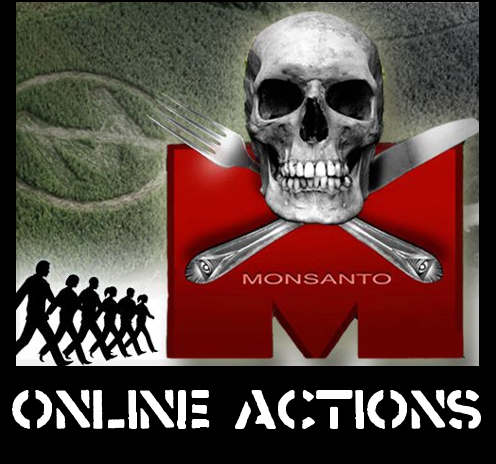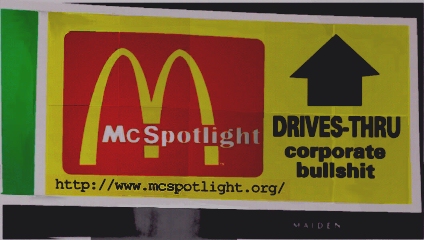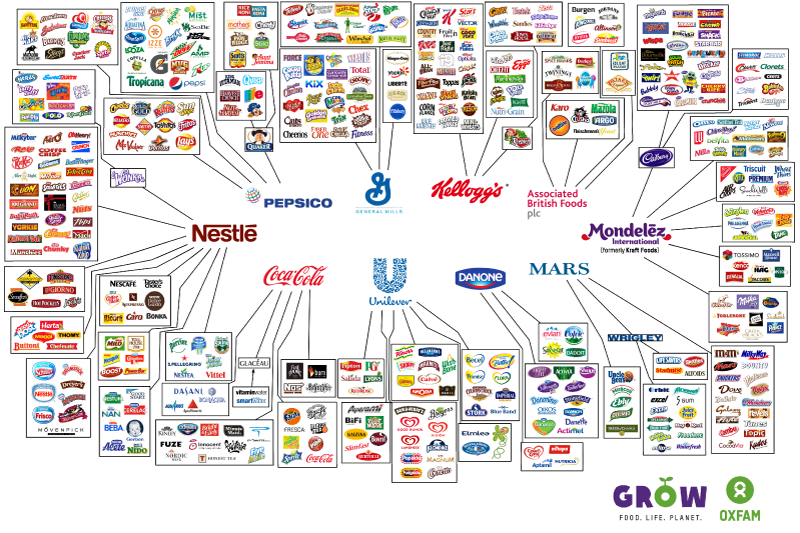UNILEVER IS THE BROKEN EGG
Unilever fails reporting cocoa sustainability, 2024-02-27

Easter is coming soon. The Chocolate Scorecard informs your choice of sustainable chocolate eggs. It ranks the good, the bad and the ugly payers in cocoa industry. The Scorecard evaluates the 56 producers responsible for 95% of the world's chocolate on the basis of deforestation and climate, traceability, labor rights, and sustainable farming practices. The card presents scores by colored eggs: green for good, yellow for improving, orange for trying, and red stands for "needs to catch up to the rest of the industry". This year Dutch company Original Beans came out on top with a good egg in every category, closely followed by Tony's Chocolonely, producers of the world’s first "slavery free" chocolate bars 20 years ago. Unilever (Magnum ice cream) - one of the ugly players - was awarded a broken egg for failing to take part in this year’s cocoa sustainability survey at all. The Chocolate Scorecard's team comments "Consumers and investors have a right to be informed about the conditions under which chocolate is produced." However, most major chocolate companies have commitments to source more sustainable cocoa. In fact, many of them have plans to have 100% certified cocoa in their supply chain in some years. Although this is an important step in the right direction, certification programs alone are not enough to solve the underlying issues that contribute to child labor in cocoa, including farmer poverty and a lack of infrastructure. On top of a child labor problem, the cocoa industry has a huge negative impact on forests. In the Ivory Coast and Ghana, 90% of their forests have been lost and the cocoa industry is a big driver of that deforestation. Make your chocolate purchase count! Use the Buycott app to boycott Unilever products!
STOP NESTLE AND P&G SETTING FIRES
Nestlé and Procter & Gamble fuel fires in Indonesia, 2024-01-17

Indonesia saw the return of intense and smoky fires in 2023. Fires generally correspond with Indonesia’s dry season, which runs from June into December, with fire activity peaking from August into October. Until 2 October 2023, fires had burned around 267,900 hectares since the start of the year, surpassing the area burned during all of 2022. In response to the fires and air pollution caused by the smoke across Indonesia, the environment ministry shuttered 35 concessions, including several oil palm plantations, and issued 220 warning letters to companies in October. Nestlé and Procter & Gamble are two of the biggest consumer goods companies in the world and present themselves as sustainability leaders. Both are part of the Consumer Goods Forum (CGF) - a corporate alliance whose members produce the food and household goods that millions of people use every day, supposedly committed to ending deforestation in their supply chains by 2020. But all their “updated” forest protection policies lack accountability by putting the responsibility on the intermediaries like the oil palm plantations or mills. To make things worse, Procter & Gamble quietly published a revised Forest Commodity Policy in June 2023 that is no longer prohibiting forest degradation caused by industrial logging in its wood pulp supply chain. This new loophole will have devastating consequences in the last remaining intact forest landscapes. Both companies are doing business with rogue palm oil and paper producers who recklessly burn precious rainforests to the ground to expand their monocultures. Tell Nestlé and Procter & Gamble to stop setting Indonesia’s rainforests on fire – clean up your palm oil and paper supply chains! Use the Buycott app to boycott Nestlé products!
WEIGHT-CONTROL DRUG KILLS JUNK FOOD
New drug could slow fast food consumption, 2023-11-20

The junk food industry faces a new crisis in America. Consumption levels are declining because of the arrival of Ozempic (produced by Novo Nordisk) and other weight-loss medications that are very effective in suppressing appetite. These drugs have the potential to substantially reduce obesity and related medical problems such as diabetes. An estimated seven percent of the US population will be taking these drugs by 2035. The food industry is confronted with reduced demand. Most vulnerable are those companies that profit from excessive eating, especially the snack food sector, such as Mondelēz International. Until lately, companies such as these were riding high as Americans boosted their junk food consumption during the pandemic. Kellogg's was even pressed by Wall Street to split into two so that its faster growing snack business (Pringles, Cheez-It, etc.) would not be held back by the less dynamic breakfast cereal operation. The separation was completed in October 2023, but now the new Kellanova snack company may be less profitable. Big food companies are constantly evolving their products to adapt to consumer trends. But most of the time this doesn't work. Packaged food companies have paid out millions of dollars in class action lawsuits accusing them of making unsubstantiated health claims for their products. For example, Kellogg’s (and now Kellanova’s) Nutri-Grain bars are widely criticized for being high in sugar and low in fiber. The best outcome would be if those freed from their addiction to junk food shift their diet to fresh foods, and the leading packaged brands vanish from the market because nobody buys their fatty stuff.
BUNGE DRIVES DEFORESTATION IN BRAZIL'S CERRADO
Soy exporter BUNGE caught destroying the Cerrado savannah, 2023-10-20

Bunge, a global commodity trader headquartered in the United States, is the main supplier of soy animal feed to the meat industry in the European Union. Bunge is one of the biggest soy players in Brazil's Cerrado, next to ADM, and Cargill. The Cerrado savannah, which borders the Amazon rainforest and makes up nearly a quarter of Brazil's territory, sequesters vast amounts of climate-warming greenhouse gas in its vegetation through their deep roots. Roughly half of the Cerrado has been destroyed to date, largely to make way for farming of soy, beef, corn and other agricultural products. A recent report of the environmental group Mighty Earth found that Bunge bought soy from three farms responsible for 11,351 hectares of deforestation in the Cerrado, cleared after 2021. Their partner organisation AidEnvironment detected another five cases of deforestation that took place in early 2023, in high-risk areas where Bunge is the leading soy exporter. Already in November 2020, major retailers and food companies including Tesco, Walmart, Unilever and McDonald's urged Bunge to commit to the ‘Cerrado Manifesto’, asking the company to stop sourcing soy, directly or indirectly, from areas cleared in the Cerrado after 2020. Bunge fails to comply with the 2020 deforestation cut-off date, also required by the new European Deforestation Regulation (EUDR). Instead, Bunge claims that it does not purchase soy from illegally deforested areas in the Cerrado and is working to eliminate all deforestation from its supply chains by 2025. Major retailers in Europe have now launched investigations into the deforestation allegations linked to Bunge, including Carrefour (France), Aldi Süd (Germany), Casino and Ahold Delhaize (The Netherlands). Bunge must immediately implement the 2020 deforestation cut-off date and suspend farms and suppliers that violate this no deforestation policy.
TESCO INVOLVED IN FOREST CRIME
Soy supply chain links TESCO to forest destruction, 2023-06-26

An investigation of environmental group Mighty Earth shows that UK's top retailer Tesco is a basket of problems for the Amazon rainforest. Tesco continues to do business with known forest destroyers such as Cargill, adding fuel to the fire of Amazon deforestation. UK food retailers like Tesco are signatories to the UK Soy Manifesto which committed them to ensure their supply chains were "deforestation- and conversion-free" by 2020, with a further commitment to stop sourcing from suppliers linked to deforestation or land conversion by 2025. Tesco is the UK's largest supermarket chain whose chicken is supplied by Avara. Avara foods is the UK's largest chicken producer and is part-owned by Cargill. It is one of the UK produces with greatest exposure to Brazilian soy and is directly supplied with feed by Cargill. Soy is a key ingredient in animal feed, particularly for intensively farmed chickens and pigs. Around 70% of the UK's soy is imported by Cargill and 75% of Cargill's soy comes into the country from Santarem port in Brazil. The report of Mighty Earth identifies the Santa Ana farm in Brazil's state Mato Grosso on which 400 hectares of forest were illegaly burned in September 2022 to make way for soy. The farm supplies soy to Cargill, which exports the beans via Santarem port to locations around the world, including directly to the UK. Cargill previously had removed the farm from the list of its approved suppliers, after Brazilian authorities documented illegal deforestation on the farm, however reinstated them in 2022. As the UK’s biggest retailer and with such a dominant market share, Tesco should use its power as a force for good to clean up its supply chains and cut ties with Cargill - Sign Mighty Earth's petition to Tesco.
SOLIDARITY WITH THE LAST GENERATION
Comment on the raids at "Letzte Generation" in Germany, 2023-05-26

Boycott International Food Companies is in solidarity with the activists of the climate movement "Letzte Generation" (last generation before the climate tipping points), which are affected by the nationwide raid in Germany executed by the Munich General Prosecutor's Office. The activists of the "Letzte Generation" do not commit crimes, but act in civil disobedience to draw attention to the consequences of the climate crisis. At the same time as the blocking of the organization's homepage on May 25, 2023, the organisation's donations (1.4 billion Euros) were confiscated by the public prosecutor's office. It is misleading that after the raid, various politicians said that the raids are concerned with investigating whether the "Letzte Generation" is a criminal organization. With the seizure of their finances, the organization's ability to stay active is definitely damaged, even if the funds should be reimbursed later if the accusation cannot be confirmed. Regardless of the question of consent with the actions of the "Letzte Generation", the raid is an attack on the actions of civil disobedience. For months there has been a campaign of right-wing politicians from a wide variety of political parties to proceed legal actions against the climate activists. The federal government is irresponsible because it does not decide any effective measures against climate change. The transition of heating energy can neither wait longer, nor can the economy continue like before the war in Ukraine. The exit from the profit machine driven by fossil energies and the entry into a climate neutral, sustainable circular economy is overdue. Political reality in Germany, however, is that the federal government itself does not tackle simple greenhouse gas reduction measures such as a speed limit on motorways and a ban on domestic flights. Instead government relies on brutal repression against people who make use of their right to practice civil disobedience. The "Letzte Generation" has already activated a new homepage. We are calling for supporting "Letzte Generation" with a donation through the donation page of "Initiative Gesellschaftsrat Jetzt".









